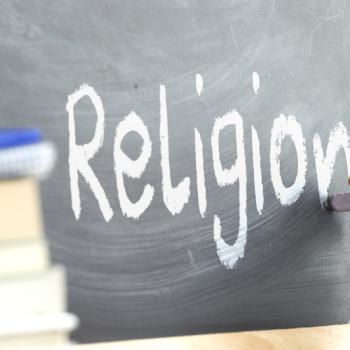Editors' Note: This article is part of the Public Square 2014 Summer Series: Conversations on Religious Trends. Read other perspectives from the Mormon community here.
A common interpretation of recent LDS disciplinary actions against Kate Kelly—asserted by Kelly herself and echoed over much of social media—argues that these actions were intended to repress questions.
In a letter to her local leaders before her disciplinary council, Kelly claimed that if they excommunicate her, they are "punishing anyone with a question in their heart who wants to ask that question vocally, openly and publicly." Again in an interview following her excommunication, Kelly summarized: "I think the church is trying to scare people away from asking questions out loud, particularly women."
I disagree, and I believe that this assessment makes Mormons with questions feel needlessly at risk and gives those uncomfortable with questions a false cue. The potential result of reversing an increasingly transparent and expansive Mormon culture is one that gives most people a legitimate feeling of deep discouragement.
Here are a few reasons that persuade me that such discouragement is misplaced and that LDS leaders, local or general, were not intending to repress or punish questions:
1) People have been asking hard questions for a long time. And very vocally and visibly, thanks to the internet. LDS sociologist Armand Mauss, observing the lively presence of feminist blogs over the years, believes the recent disciplinary councils "simply represent [an effort] to draw the line more emphatically between dissent (even public dissent), on the one hand, and organized movements seeking to bring pressure for change upon the church leaders, on the other hand. ... Official toleration for such dissent in 2014 seems to me much greater than it was two decades ago." A few weeks ago, the head of Church PR, Michael Otterson, reached out to several blogs in the "Bloggernacle" (the familiar term for the Mormon online aggregate), including Feminist Mormon Housewives, to post a letter, implicitly acknowledging the blogs as a valuable forum familiar to Church PR.
2) The Church says it's not. Church Public Affairs and leadership have repeatedly emphasized that asking questions is welcomed in the Church. The first official statement from the Newsroom opened by saying "[t]he Church is a family made up of millions of individuals with diverse backgrounds and opinions. There is room for questions and we welcome sincere conversations." Follow-up statements reiterated the centrality of questions to LDS history and theology and the "room to ask questions." On June 28th, the First Presidency and Twelve Apostles published a letter on lds.org reaffirming that "members are always free to ask such questions [about Church doctrine, history, or practice] and earnestly seek greater understanding. … Simply asking questions has never constituted apostasy."
3) Kelly's local leaders say it's not. The letters from Kelly's local leaders have explicitly denied that asking questions has anything to do with the disciplinary decisions. The probationary and excommunication letters specify that "the difficulty… is not that you say you have questions or even that you believe that women should receive the priesthood," but Kelly's "aggressive" opposition to Church doctrine and counsel, such as leading a protest on Temple Square and disseminating proselyting material for her organization.




